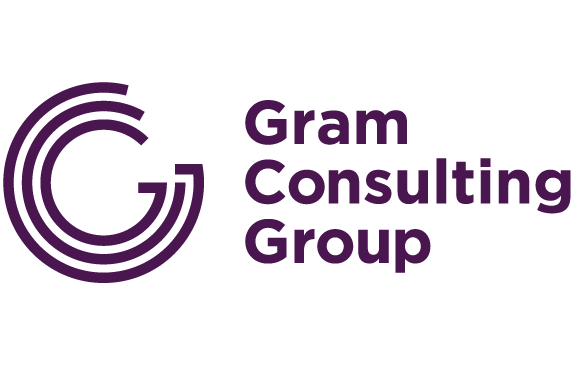
15 Oct Improving Team Performance: How To Motivate and Boost Efficiency
Improving a team’s performance is no doubt, a difficult task. There are different factors that affect the success of an organisation. It’s not just about the money you offer or what kind of benefits your team members have, but also how well you can keep up with their needs and help them grow professionally.
Why is it important to improve team effectiveness? Having an effective team that works well together leads to better communication, increased trust, and improved efficiency. In short, as you increase team effectiveness it contributes greatly to business success. A Gallup survey even found that businesses with engaged employees beat other companies by a whopping 202%.
In this post, we’ll discuss what you can do to increase team effectiveness. Go straight to the topic which interests you through the index. However, we recommend that you read through the entire article to understand better what you need to do to produce high-performance teams.
Table of Contents
Signs That You Need To Improve Team Performance
Do you feel like your team need to improve their performance?? Are they not performing at their full potential? If so, it might be time to make changes.
There are many ways to improve performance on a team, but these three signs should make it obvious if it’s time to take action or not.
1. No communication between team members.
2. Team members have no motivation.
3. There’s a lot of misunderstandings and disagreements.
If these situations apply to your team, then it’s time that you come up with a strategic plan to improve their performance.

Characteristics of a High-Performance Team
Have you ever experienced working with a great team? Their team effectiveness was so contagious that you were full of energy and loved to come to work every day. Although work may have been challenging at times, there was teamwork and everyone was focused to get things done.
It’s not just about having experienced managers, this happens when employees become a part of a cohesive business unit working towards the team’s goals.
To continue building success for your business, a high-performing team requires these characteristics:
- They work together towards the same team goals.
- Everyone contributes ideas and participates in extensive discussions.
- Open to constructive criticisms.
- Mutual respect is practiced among workers.
- Friction or disagreements are quickly diffused.
It’s the duty of leaders to create high-performing teams by establishing a great workplace where everyone gets along well and performs their best, without dreading going to work each day. Remember, improving the team performance of different people with various backgrounds isn’t an easy task. But if you can instill these characteristics, you’ll have a winning team.

How to Improve Team Performance
Team performance is crucial to the success of any business. If your team isn’t performing to its full potential, it’s time for serious decision-making to boost productivity and morale.
Below are seven ways you can support your team and encourage high performance.
1. Set Goals
When you have clear goals, it naturally boosts team performance because they know where to focus and which tasks to prioritise. Also, goals provide teams with clarity as they’ll know exactly what they’re working towards.
For bigger teams, in particular, it always helps that everyone has a clear vision of the purpose of the project so when they experience difficulties, they can remind themselves of the goal they are striving for.
2. Give Ownership
Good leaders understand the power of giving ownership. By giving ownership to every team member means you’re letting them be responsible for their own decisions and accountable for their work. This encourages responsibility and every member will start to see that their decisions can highly impact team performance.
Giving ownership comes in different forms like leading a project, handling training, or taking responsibility for a task. It simply shows that you trust every member’s knowledge and skills to handle a specific job. When you do this, you’re giving them support on the individual level, building everyone’s self-esteem in
the process.
3. Build Effective Communication
When employees don’t communicate well, team performance is dramatically reduced.. Because the absence of communication fosters bad work practices.
Communication plays a big part in helping team members understand their different job responsibilities. When there’s a communication gap, it leads to confusion within the team, which impacts focus and performance.
Whether you need to explain a complicated task, onboard new employees, or deliver training and online courses, make sure you have a good communication platform to keep everyone aligned.
4. Know Their Strengths and Weaknesses
Every person has their own talents that can be put to good use. Every leader should be aware of their member’s skill-set and keep them in mind when allocating tasks. For example, if you have a team member who likes to think outside of the box, try letting him pitch creative ideas in front of a client.
Teams who are making the best use of their knowledge, expertise, and skills, look forward to contributing to the workplace.
5. Incorporate Team Building Exercises
Good team performance depends greatly on the camaraderie between members. If the team get along well, are aware of each other’s strengths and weaknesses, the workplace becomes a better, happier place and efficiency automatically goes up.
Different kinds of people working in a team mean there’s a possibility that not everyone will like each other. To remove animosity in the group, hold team-building exercises once in a while to add a fun element. This also helps to clear up any miscommunications or grudges between team members.
6. Give Incentives
Many organisations practise giving incentives to motivate employees. Team members will want their efforts to be appreciated.
Keep incentives varied. It doesn’t always have to be in the form of cash. For example, you can give free vouchers, extra time off, paid vacation, or a company-funded dinner.
7. Introduce a Feedback Process
Sometimes, something as simple as being acknowledged for a job well done can boost team performance. A public act of appreciation inspires the team to do their best, knowing that their contribution is valued.
When you lead a team, it’s important to establish a feedback process. This is where performance reviews and constructive feedback comes in to realign the team’s focus.
Once you’re done giving them feedback, don’t forget to ask what you could do to support and help them improve their skills. Your team members may need more training, guidance on certain tasks or prefer a little more room for creative freedom. This encourages a culture of open dialogue, making future collaborations easier.
Bring Out Your Team’s Full Potential
If you feel that your team’s performance could be improved it’s time to get an outside perspective from an expert. Keep in mind that every person and team is different, which is why at Gram Consulting we work with you to develop highly effective teams that will bring your business to the next level.


